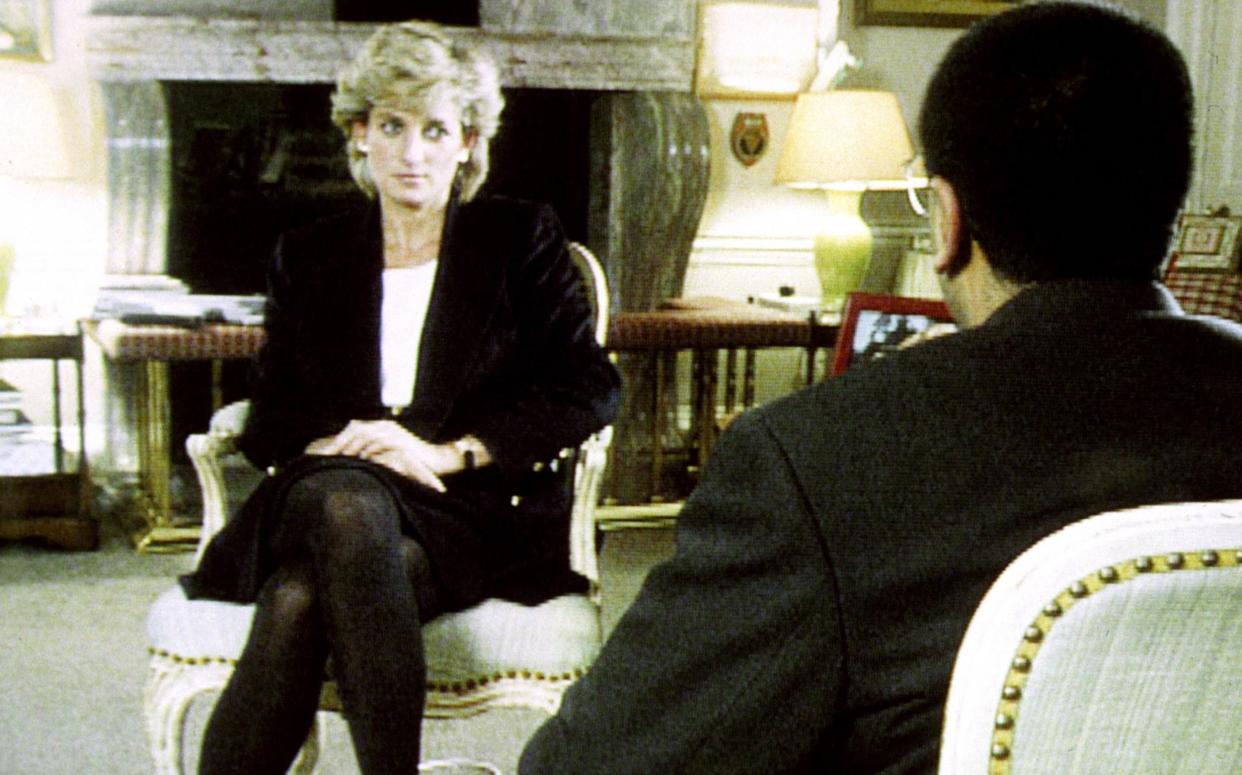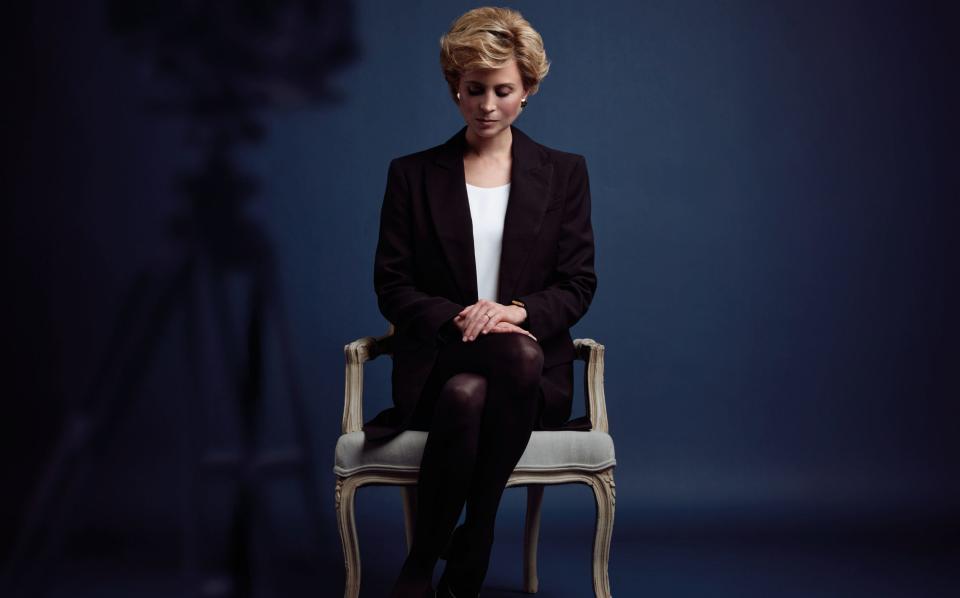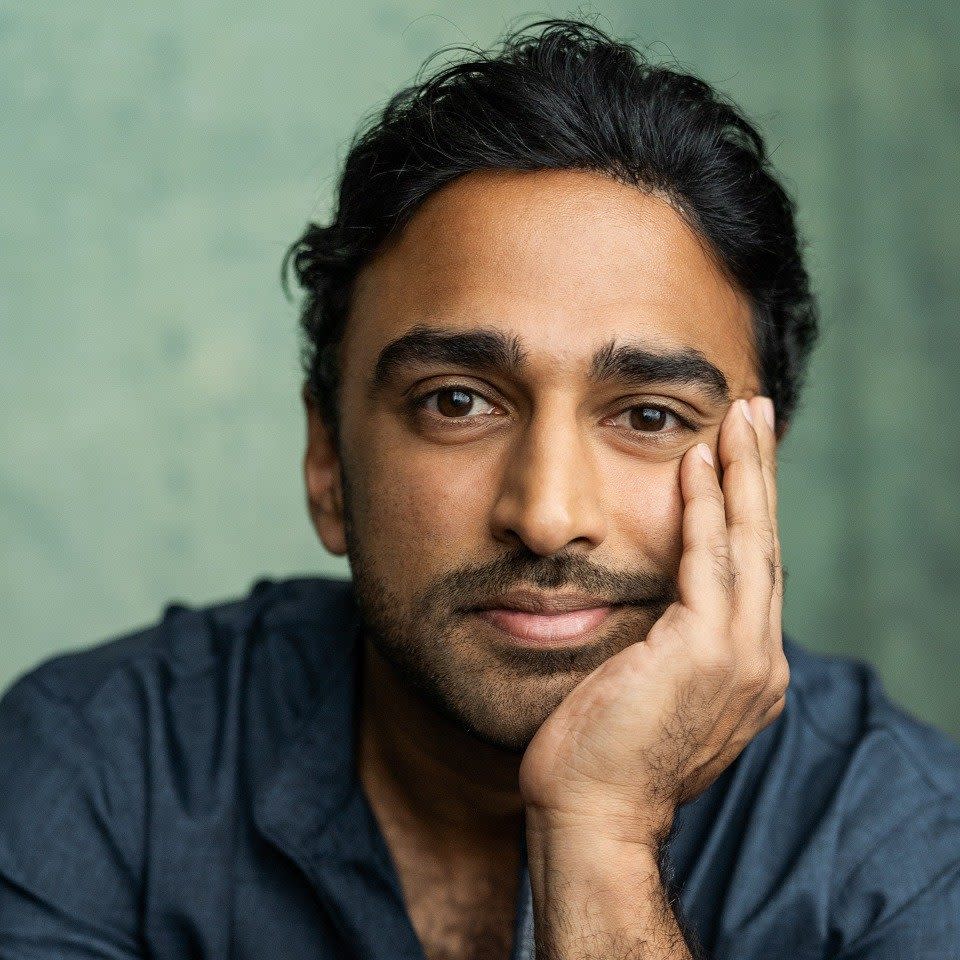Martin Bashir ‘coached Princess Diana to say certain phrases during Panorama interview’

When Princess Diana told the discredited journalist Martin Bashir that she “adored” James Hewitt, the delivery was assured and polished.
A crew member who worked on the infamous Panorama interview has now revealed that Bashir spent hours training Princess Diana to help her deliver succinct and lively answers to his questions in the 1995 interview. He met her on many occasions in the six months before the episode – in her apartment in Kensington Palace, sometimes over pasta and pesto meals, but also during car rides in the countryside.
A new play, The Interview, opening at the end of October in London, will spell out how Bashir coached the princess. One example is Diana’s noted phrase about the former army officer Hewitt of “Yes, I adored him. Yes, I was in love with him”.
“I am absolutely satisfied from talking to crew members and those who knew Bashir well that he helped coach her,” says playwright Jonathan Maitland. Before turning to the stage, Maitland worked for more than three decades as a news journalist for the BBC and ITV, spending some time as a colleague of Bashir’s. The two had a decent relationship.
However Maitland was unable to verify if it was Diana herself or another person who came up with the most memorable phrase from the interview of “There were three of us in this marriage”.

Maitland, conscious of the BBC ban on the interview after complaints from Prince William, is however using about two minutes’ worth of quotes spoken by the actors playing Diana (Yolanda Kettle) and Bashir (Tibu Fortes). Lawyers for the play’s production team, Original Theatre, have not only questioned Maitland on sources but argue that two minutes from the original interview is justified. Netflix’s The Crown used slightly more.
The play at the Park Theatre also uses off-cuts from the original interview, edited from the final broadcast. Again, this is well sourced. This includes Diana talking about her tricky relationship with the Queen Mother. She says: “She’s looking at me and then looks away. She smiles. I can’t make her out. It’s very odd.” Also removed was Diana listing other boyfriends. Crew members recall Panorama’s editor Steve Hewlett, who died in 2017, demanding a cut, saying “That’s enough boyfriends, Ed” – a twist on the phrase used by Private Eye. Hewlett says this in the play.
The Interview, which uses Diana’s butler and confidante Paul Burrell as its narrator, concentrates in its first act on the lead up to the interview. This includes the wooing of Diana, the coaching and Bashir asking graphic designer, Matt Weissler, to mock up fake bank statements with payments from tabloids to people who provided gossip about Diana. These were shown by Bashir to her brother Earl Spencer, who thought them so damning that he encouraged her to agree to the interview.
However the play mentions that two other very influential individuals, Max Hastings, a former editor of The Daily Telegraph, and film producer David Puttnam, advised the princess against the interview. Puttnam said: “TV and royalty don’t mix.” A composite friend of Diana, called Lucinda, also tells her in the play: “Wow, are you really going to say this?”

The second half looks at the interview itself and the aftermath, inferring that some very senior BBC people quickly knew Bashir had faked documents. Some colleagues on Panorama even joked when Bashir came into the office after the Diana interview with a certificate about completing the marathon. They joshed about whether it was a forgery.
Tony Hall was director of news and current affairs when the interview was broadcast in 1995, with the then director-general John Birt very much kept in the loop. Maitland uses a device of the three different Men From The BBC rather than actual individuals to portray corporation executives in scenes from late 1995 and then 1996 when they were anxious to maintain silence over Bashir’s tactics, and again in 2016 when he was, very surprisingly, re-hired as religion editor.
Hall, who became DG in 2013 was, within a year of his retirement in 2020, castigated by Lord Dyson’s inquiry for overseeing “a flawed and woefully ineffective” internal investigation into Bashir.
Maitland, whose last play was An Audience with Jimmy Savile, with Alistair McGowan as the depraved presenter, can see parallels in the way the BBC handles crises – particularly with BBC1 currently showing its Savile drama with Steve Coogan. “Of course you must not compare Bashir with Savile as individuals,” says Maitland. “However there are similarities over how both scandals were covered up within the corporation. Senior people in the BBC long knew the realities.”
Bashir, who left the BBC in 2021, was approached about the play’s contents, but has not responded. He did however have some brief email correspondence with Maitland when he began writing the drama in 2021. Bashir even suggested that Idris Elba play him. “I was never sure if that was a joke,” says Maitland.

 Yahoo News
Yahoo News 
